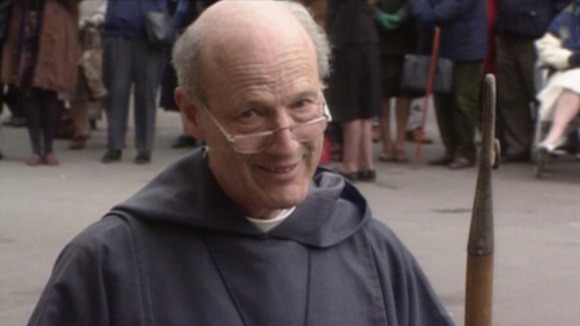Peter Ball should have been prosecuted for sex abuse 22 years ago admits CPS
The disgraced former Bishop of Gloucester Peter Ball should have been prosecuted 22 years ago when his sex abuse crimes first came to light, according to the Crown Prosecution Service.
There was sufficient evidence then to mount a prosecution and the decision merely to issue a caution was wrong, BBC Radio 4's Sunday programme revealed.

Last Tuesday, more than two decades later, Ball pleaded guilty to 18 charges to sex abuse involving young men and to further charges involving misconduct in public office, going back 35 years. He will be sentenced next month.
Solicitor David Greenwood, who represents several of Ball's victims, told Sunday that offenders such as Ball – who was Bishop of Lewes before his elevation to Gloucester – who had risen to a position of power, tended to feel they were working in a culture where they could "get away with it" without being caught. "It seems that Peter Ball has been able to do that," he said.
The officer in the case said Ball had used a "cloak of fraudulent Christianity" to deceive and groom his victims. Many of the victims were aspiring priests and he would offer to support them through their ordination.
Sean O'Neill of The Times said the key moment was in March 1993 when the CPS wrote to the bishop's lawyer and said that although they had evidence to prosecute, they were prepared to offer a caution on one offence instead. Ball was allowed to retire to save the Church further embarrassment. The CPS admitted it would have been in the public interest to prosecute 22 years ago.
Phil Johnson, who says he was abused by Ball when he was 13, is one of two complainants whose cases will not go to trial and will lie on the file after Ball pleaded guilty on the other charges. He said: "It all seems to be about protecting the image and institution of the Church."
Mirror columnist Nigel Nelson wrote: "Yet another example of a predator let off the hook when allegations first swirled around. But it was the statement from London's Church House, the Church of England's GCHQ, which got me. It said: 'The CofE always takes any allegations of abuse very seriously.' It's the word 'always' to which I take exception. Ball proves that was not always the case. The CofE is big on forgiveness. But a little more repentence would be welcome."











